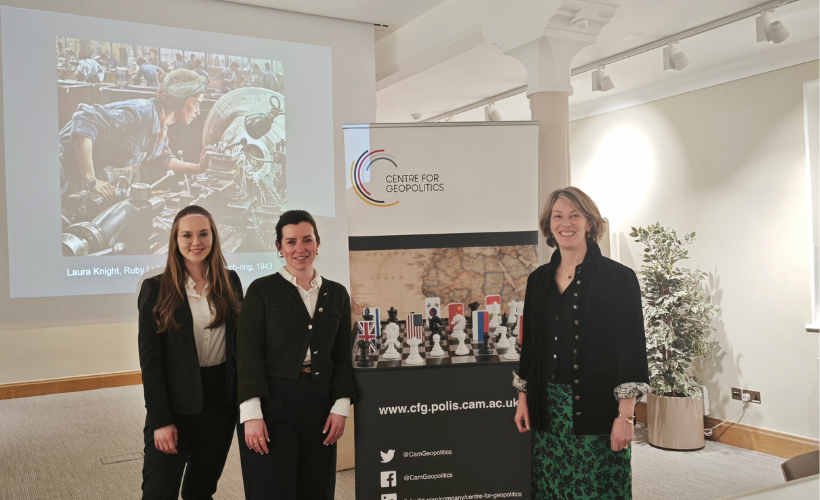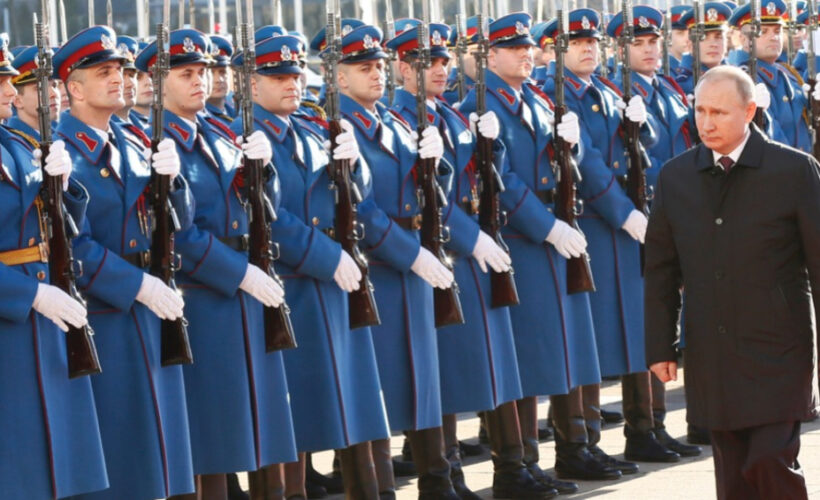Is this year’s US presidential election unprecedented, or have we been here before? How did we get here? And what happens next?
These are just some of the questions that were discussed in a highly engaging event put on by the Centre for Geopolitics in collaboration with Cambridge in America. The panel conversation brought together some of Cambridge’s chief authorities on American history and sought to illuminate the current political moment from a historical perspective.
Professor Andrew Preston of Clare College chaired the event, comprising a panel of Cambridge academics, Professor Gary Gerstle (Sydney Sussex College), Dr Ruth Lawlor (Queens’ College) and Dr Daniel Larsen (previously of Trinity College).
As the panellists made clear, the story of this year’s presidential elections is not a straightforward one. There are echoes of the past in the present; contested elections took place in 1824, 1877, 1960 and of course in 2000, when Bush defeated Al Gore. But what is entirely novel, as Professor Gerstle pointed out, is a sitting president actively courting the idea that an upcoming election may be rigged. Indeed, it is also potentially the first time that the resident of the White House, rather than a challenger for it, has been implicated in issues of concession.
And the election is just one dimension to the political struggles taking place between Republicans and Democrats at the moment. Dr Lawlor noted that, whilst a Biden victory seems like a soothing (and increasingly likely) prospect, the tussles over the successor to Ruth Ginsburg on the Supreme Court will have consequences for US politics for decades.
Nonetheless, both Professor Gerstle and Dr Lawlor emphasised that questions over the judiciary cannot be separated off from electoral politics. Historically, the settling of contested elections has come with considerable attendant costs. In 1876, compromise over the result of the election came at the expense of the rights and aspirations of African Americans, as Republicans agreed to end Reconstruction in the South in return for the presidency. This year, Democrats may take the White House, but it could cost the Supreme Court for a generation.
It has almost become a cliché that American institutions are fundamentally broken, but Dr Larson also suggested some cautious grounds for optimism; the American Constitution has plenty of institutionalised safety valves for the contingency of a contested election. Though it has many flaws that need to be addressed, the Constitution possesses procedures designed to facilitate compromised concessions that other political regimes simply do not. Though it does not guarantee a peaceful transition, the Constitution does give politicians every chance to manufacture one, if the political will exists.
The Q&A session in the second part of the event elicited some thought-provoking questions from Cambridge alumni. One in particular concerned how we have managed to find ourselves in such a precarious political moment. Each panellist was at pains to emphasise the historical and structural factors that explain the present. Trump undeniably is an anomaly and has been unique in his irreverence towards the Constitution. But 2020 cannot be explained purely through reference to him. Much of what is going on today can be traced back to the hyper-partisanship in Congress that derives from the 1990s, the subsequent inertia of the legislature particularly under the Obama administration and his own recourse to government by executive order, and the basic sense of injustice that pervaded the US in the aftermath of the 2008 financial crash. That there seems to be so much at stake in this election is partly the product of the intense polarisation between the two parties that has developed over this period.
Finally, discussions turned towards the future. What next for the Republican party, should Trump lose? History tells us that on occasions where a particular party gets comprehensively beaten at the polls, a considerable amount of soul searching often takes place in which new political directions are forged. But what is left to be preserved? As the panellists agreed, the contemporary Republican Party is fundamentally different to its antecedents- not just the party of Lincoln, but even the party of Bush. The vision for the party of someone like Senate Majority Leader Mitch McConnell is less concerned with appealing to a majority of the electorate than controlling the judiciary and safeguarding a rulebook that facilitates Republican dominance.
We are enormously grateful to Cambridge in America for their collaboration on this event, and to Professor Preston, Professor Gerstle, Dr Lawlor and Dr Larsen for their fascinating and generous contributions. The panel was attended by some 370 alumni and friends from both sides of the Atlantic, and we are excited at the Centre to spend more time examining historical perspectives on this momentous election.







